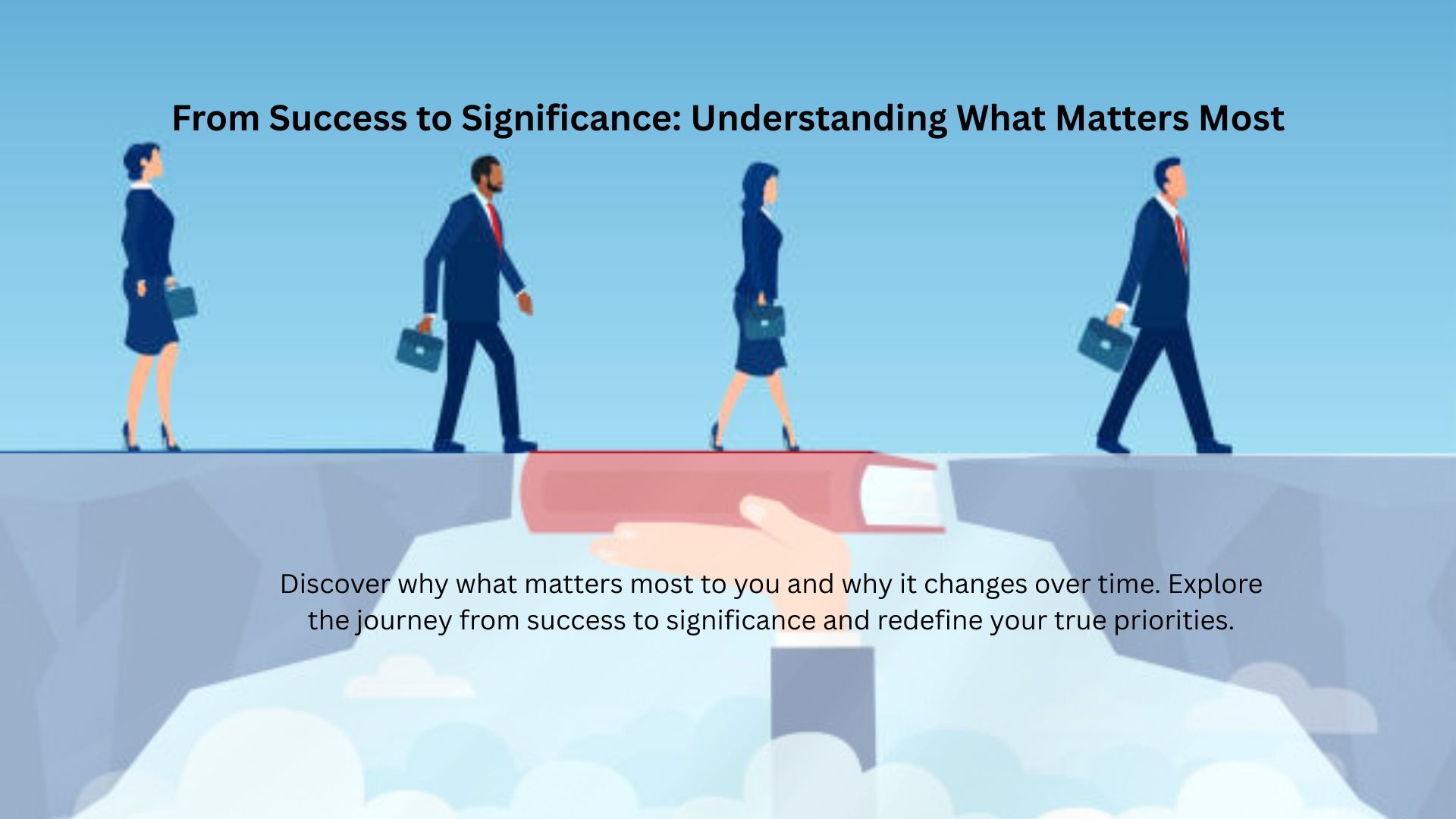
Success is often the ultimate pursuit in life. Many strive for wealth, recognition, and status, believing these achievements define fulfillment. However, as we progress through different phases of life, priorities shift. The question—"What matters most to you and why?"—becomes deeply personal and ever-evolving. What once seemed crucial may fade, replaced by values that bring a deeper sense of meaning and purpose.
The Changing Definition of Success
In early adulthood, success is often equated with tangible achievements—career milestones, financial stability, and social validation. Many young professionals focus on climbing the corporate ladder, building businesses, or gaining recognition in their respective fields. This aligns with the traditional definition of success—status, power, and material wealth.
However, as people move forward in life, the question shifts from "What matters to you and why?" to "Is this truly fulfilling?" Achievements that once seemed rewarding might feel hollow if they lack personal meaning. The realization dawns that success, without a deeper purpose, is incomplete.
From Achievement to Purpose: What Matters Most to You and Why
Life transitions—such as parenthood, personal losses, or even a shift in perspectives—often redefine priorities. The focus moves beyond personal gain to impact, relationships, and inner peace. True significance arises when accomplishments are aligned with deeper values.

For example, professionals who once prioritized high-paying jobs may later seek roles where they make a difference—whether through mentorship, philanthropy, or community service. The journey from "What matters to you, and why Stanford" reflects this transition; institutions like Stanford emphasize not just academic excellence but also the importance of using success for meaningful contributions.
Relationships Over Material Gains
As life progresses, the value of strong relationships becomes evident. While professional achievements can provide financial security, genuine happiness often stems from meaningful connections—with family, friends, or even communities. Research consistently shows that people with strong social bonds report higher levels of life satisfaction.
When considering what matters to you and why, relationships often top the list. Moments spent with loved ones create lasting fulfillment, far more than fleeting material gains.
Giving Back: The True Measure of Significance
Philanthropy, mentorship, and acts of kindness gain importance over time. Many successful individuals reach a point where accumulating wealth or accolades no longer feels as satisfying as contributing to a cause. This shift represents the journey from personal success to collective well-being.
A study conducted at Stanford University revealed that individuals who engage in acts of giving—whether through charitable donations, social work, or mentoring—experience higher levels of happiness and purpose. This aligns with the realization that success is not just about personal achievements but about uplifting others.
Personal Growth and Inner Fulfillment
As people mature, personal growth becomes a priority. The pursuit of knowledge, self-awareness, and emotional well-being take center stage. Questions like “What matters most to you and why?” often lead individuals to explore mindfulness, spirituality, or lifelong learning.
Success in the traditional sense might provide temporary satisfaction, but personal growth fosters continuous fulfillment. This shift explains why many high-achievers eventually invest in activities that nurture their well-being—be it meditation, travel, or creative pursuits.
Reevaluating Priorities: The Power of Reflection
One of the most powerful tools in understanding what matters to you and why is self-reflection. Taking the time to assess personal values, goals, and aspirations helps align actions with true priorities. Regular reflection enables individuals to adapt to changing circumstances and make conscious choices that lead to a more meaningful life.
Journaling, introspective conversations, and seeking mentorship are effective ways to reassess priorities. By doing so, individuals ensure that their pursuits align with their evolving definition of fulfillment.
Success vs. Significance: The Ultimate Shift
The transition from success to significance is a profound evolution. While success often revolves around personal achievement, significance is about impact and contribution. The most fulfilling lives are those where individuals use their skills, resources, and experiences to create positive change.

This shift does not mean abandoning ambition but rather refining it. A successful entrepreneur may still build businesses but with a focus on sustainability or ethical leadership. A high-profile executive might transition to coaching future leaders. Significance is about leaving a lasting imprint on the world.
Conclusion: Embracing Change in What Matters Most
The question of “What matters most to you and why?” is not static—it evolves as life progresses. The key is to embrace this evolution, allowing priorities to shift from external validation to internal fulfillment. By focusing on relationships, giving back, personal growth, and self-reflection, individuals can transition from mere success to a life of true significance.
Ultimately, what matters most is not just what we achieve but the impact we leave behind.